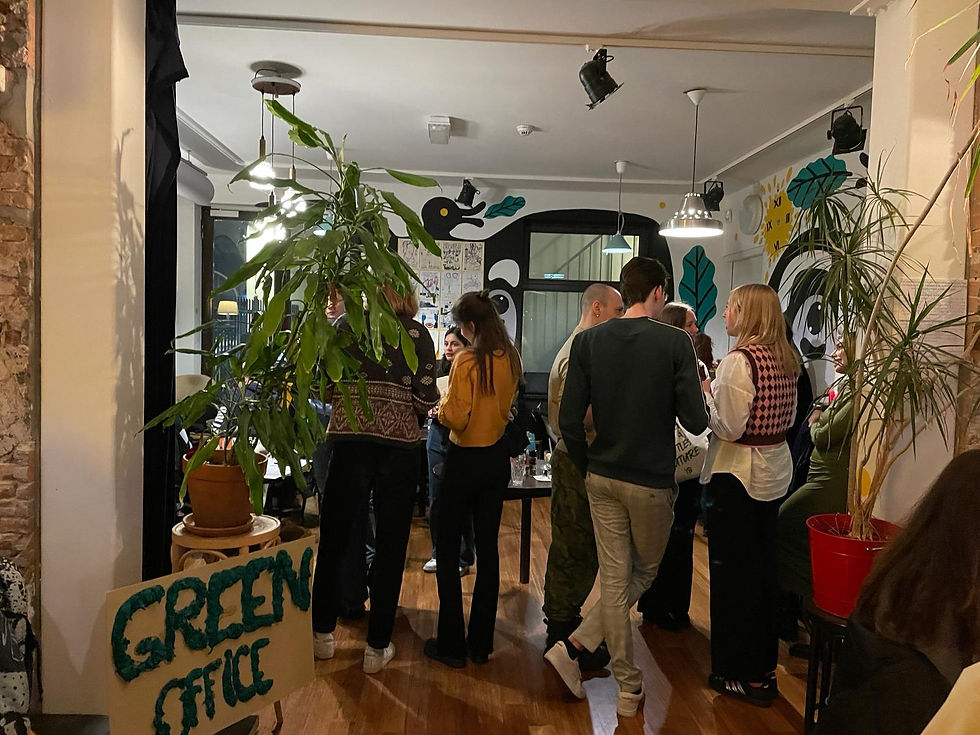MWG #10 - The Five R's
- Green Office

- Jun 8, 2019
- 3 min read

Minimal Waste Guide #10 – The Five R’s
Eleven weeks ago we published our first post on minimal waste swaps to encourage some of you to start your zero waste journey, and to provide some tips for others who are already trying to minimize their waste. We’ve shared some ideas on everyday stuff, bathroom products, coffee and food, cleaning and shopping and some more, and we hope that our posts have inspired you to include some of these ideas into your lives. As a last post before the summer we thought we’d write a little about the general mindset when approaching minimal or zero waste living. These are principles that can be considered small reminders for our consumption behavior. It’s all Rs which makes it super easy to remember!
Refuse
Say no to things you don’t need and won’t use! Sometimes it’s hard to refuse free things that many companies give away… freebies like pens and cotton bags, flyers and coupons. See what you always say yes to and try to find a more sustainable alternative. If it's flyers, take a photo with your phone and save it for later.
Reduce
You can reduce your overall consumption by questioning all significant purchases and resisting impulse buying. Before purchasing, give yourself at least a day or two to cool off. And ask yourself: How often am I really going to use this?
Try to find the best quality in your budget. Well made products will last longer, reducing the times you'll need to buy something new to replace them. Another tip is to take care of your possessions by following cleaning instructions and labels in order to make them last longer. Check out our post on clothing to see what you can do to best take care of your clothes.
Reuse (& Repair)
Reuse something you already have instead of buying something new. Reuse glass jars such as the ones from pickles, jellies, and salsa as new containers for leftovers or pantry storage instead of buying something else. Try reusing packaging like plastic and paper bags or boxes a couple of times before recycling them.
For single use items that you need to buy over and over again, think about replacing them with reusable options – grocery and produce bags, water bottles, coffee cups, etc.
Reusing and repairing go hand in hand. When you're deciding whether to toss something and buy something new, ask yourself if you can find a way to reuse or repair it. This often times works for clothes, electronics, or furniture. If you cannot repair it yourself, maybe one of your friends can?
Reusing also means selling or donating your used items so someone else can reuse them. Take your clothes to a second hand store, join facebook groups where you can give away no longer needed things, or sell your stuff on Marktplaats or eBay instead of throwing it out.

Repurpose
You’ve got to be a little more creative for this one, but there are plenty of DIY and upcycling projects on YouTube and Pinterest to inspire you.Take something you are no longer using and give it a new, more practical use. Think, mason jar into smoothie cup or pallet into shelving unit.

Recycle
Once you’ve tried everything else – recycle!
Recycle paper.
Recycle metal.
Recycle electronics.
Recycle textiles.
Recycle everything you can.
In Amsterdam, WASTED in is a simple way to turn your glass-, paper-, textiles- and plastic waste into discounts and rewards at local retailers, shops, restaurants and cafés. For every bag of waste that you separate, you receive a digital coin, which can be exchanged into discounts and benefits. Check their rewards page to find out where you can earn your discount.
The five Rs are in this order for a reason! The closer to the top, the better – see which one is feasible in the given situation. If you ever forget how it goes… there are plenty of songs to remind you!
Photo credit in respective order: Dana Vollenweider & Bernard Hermant



